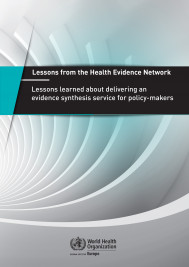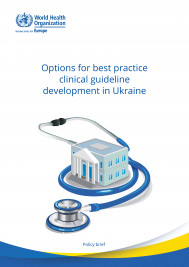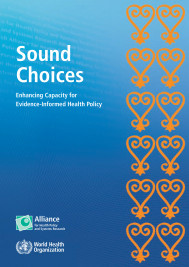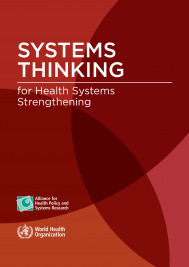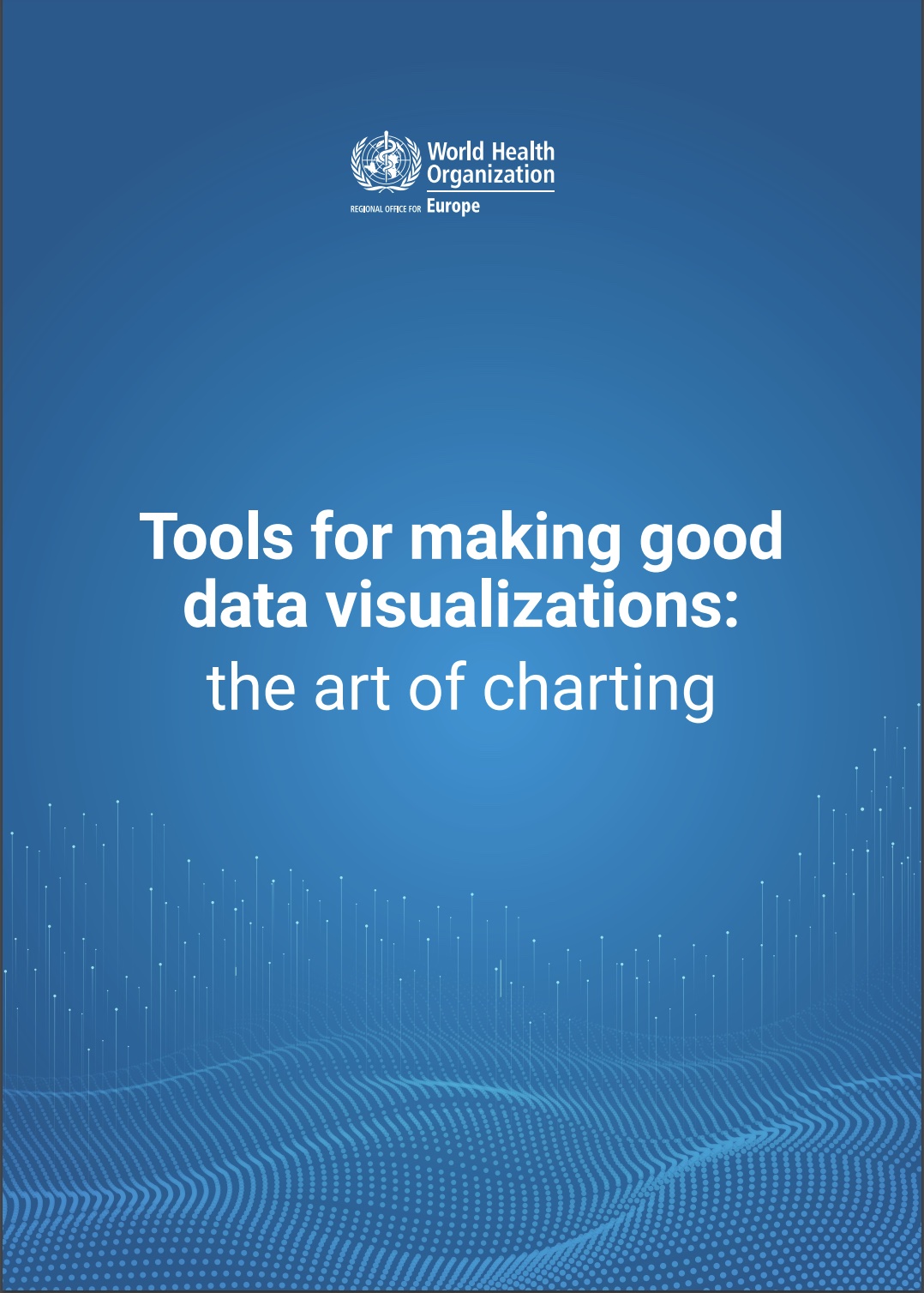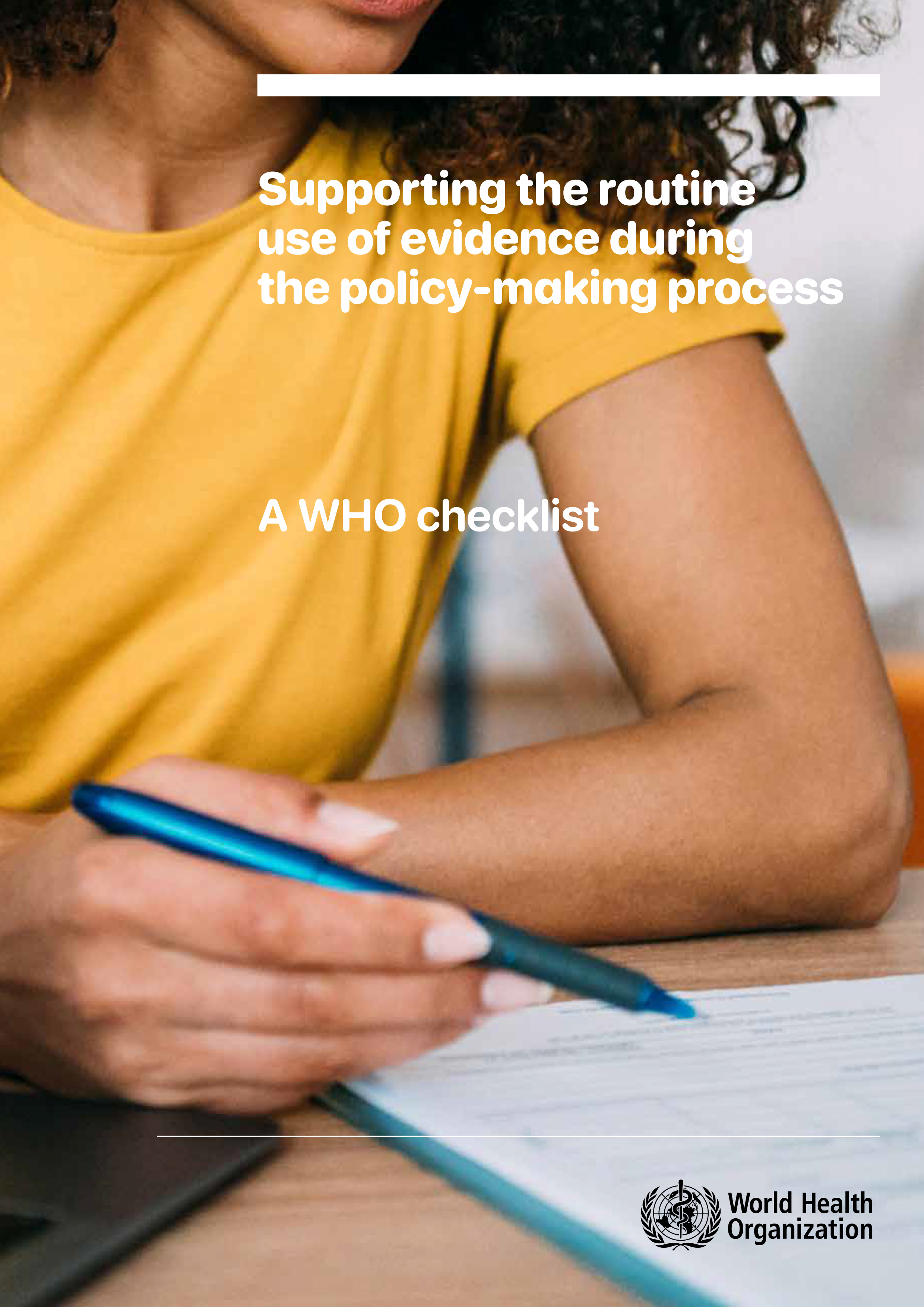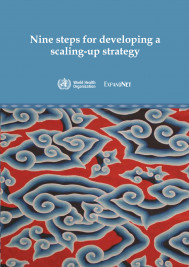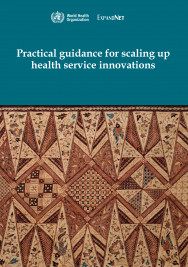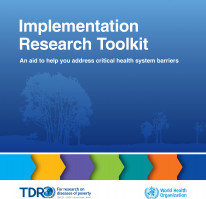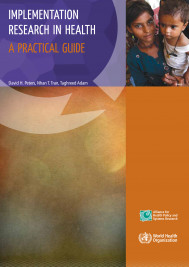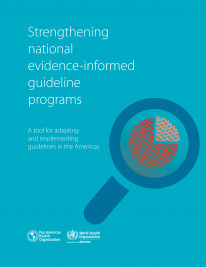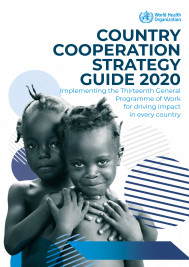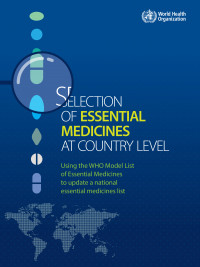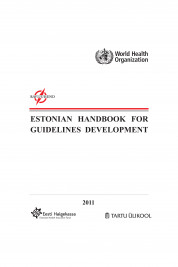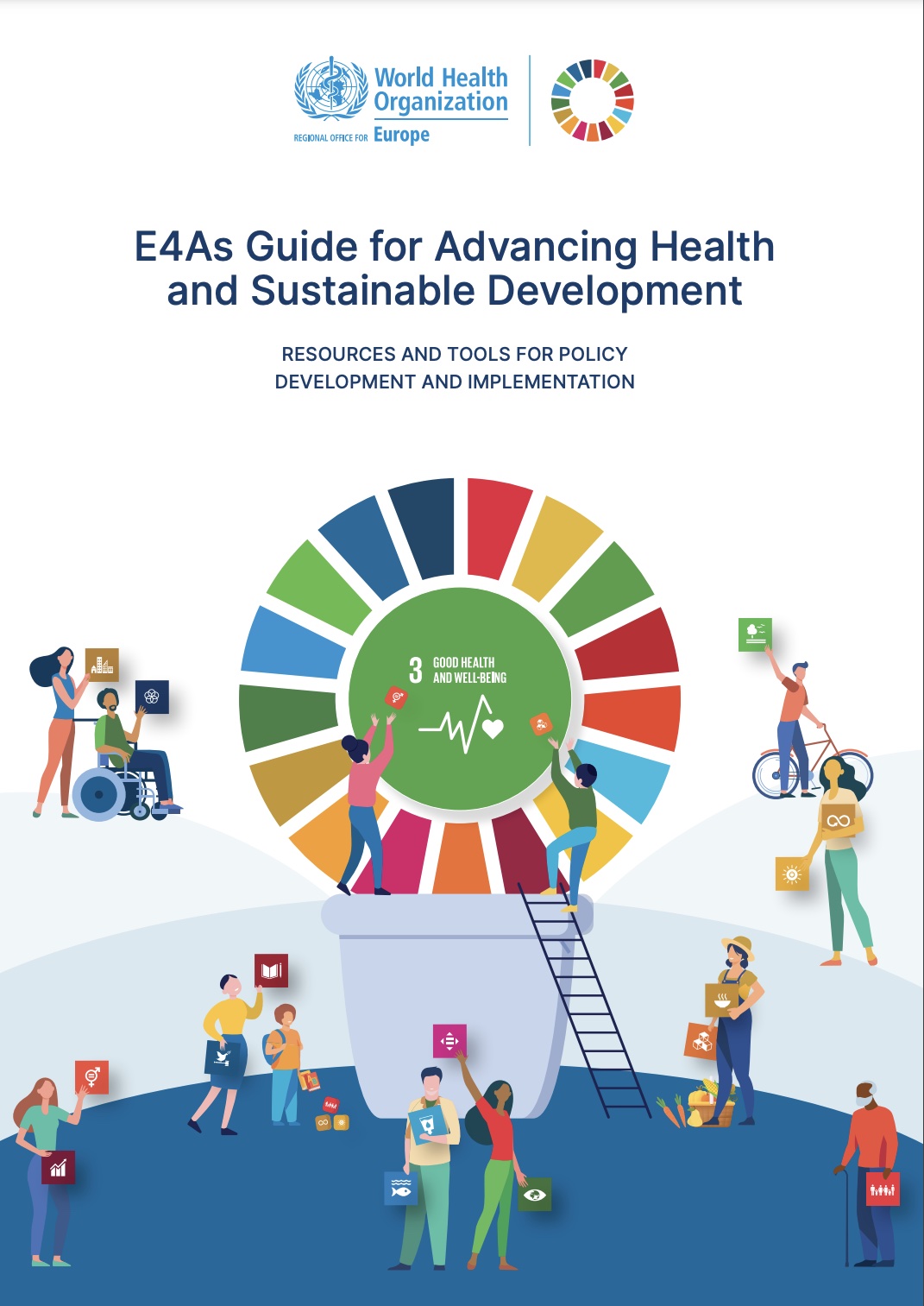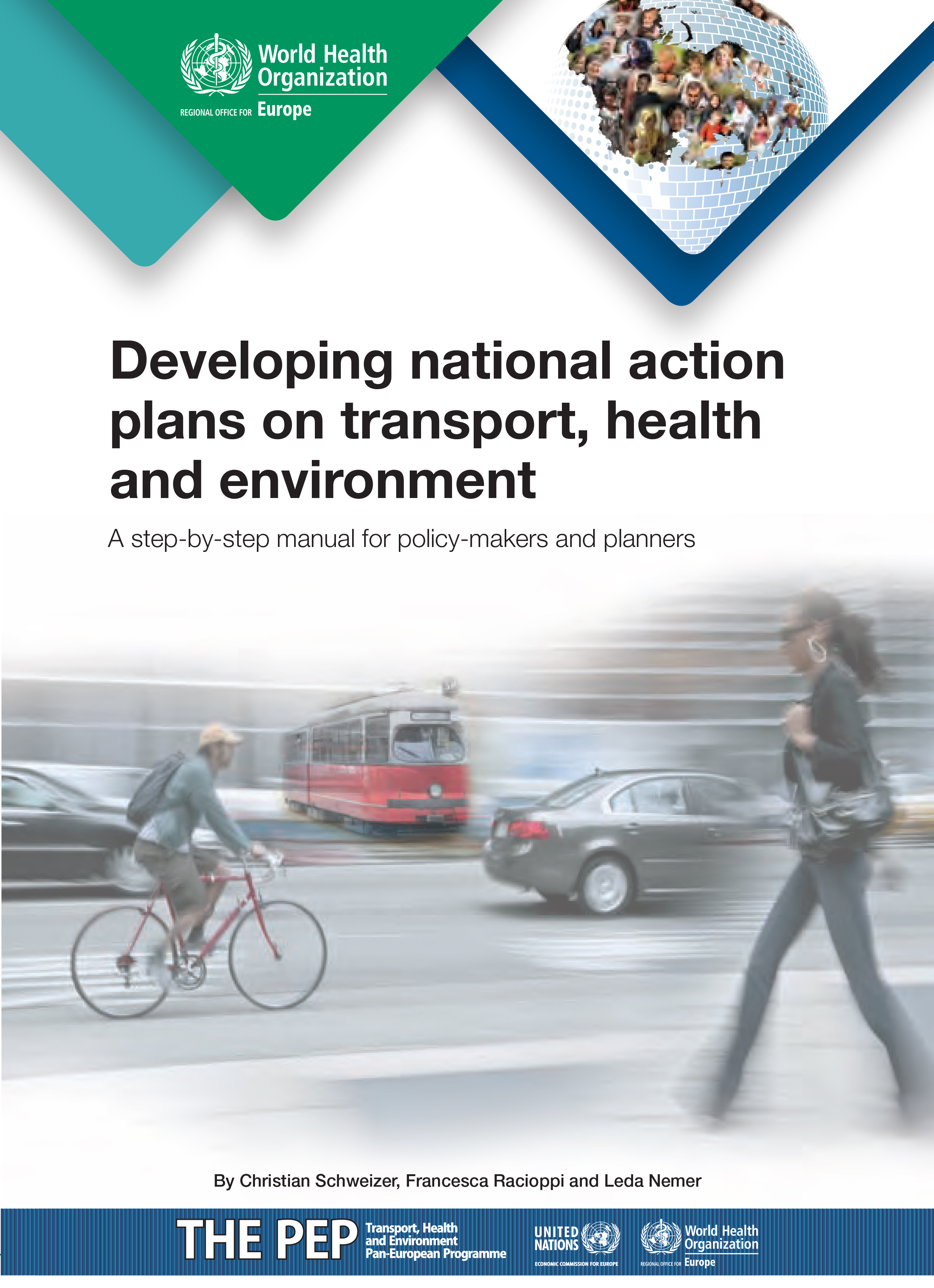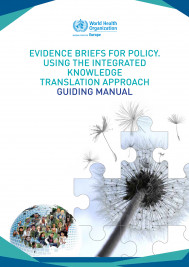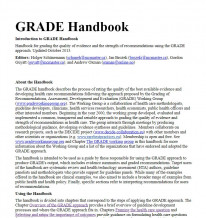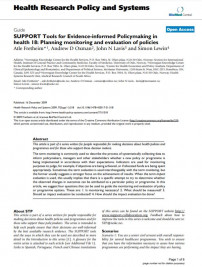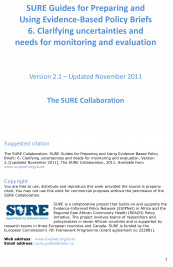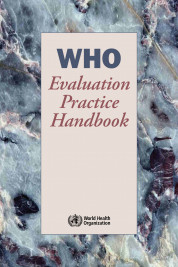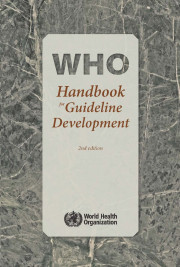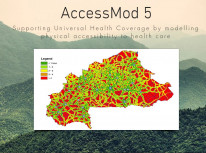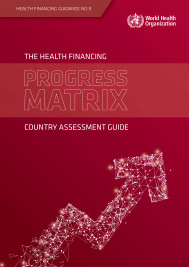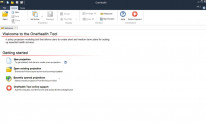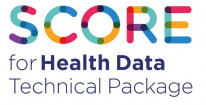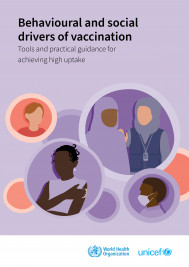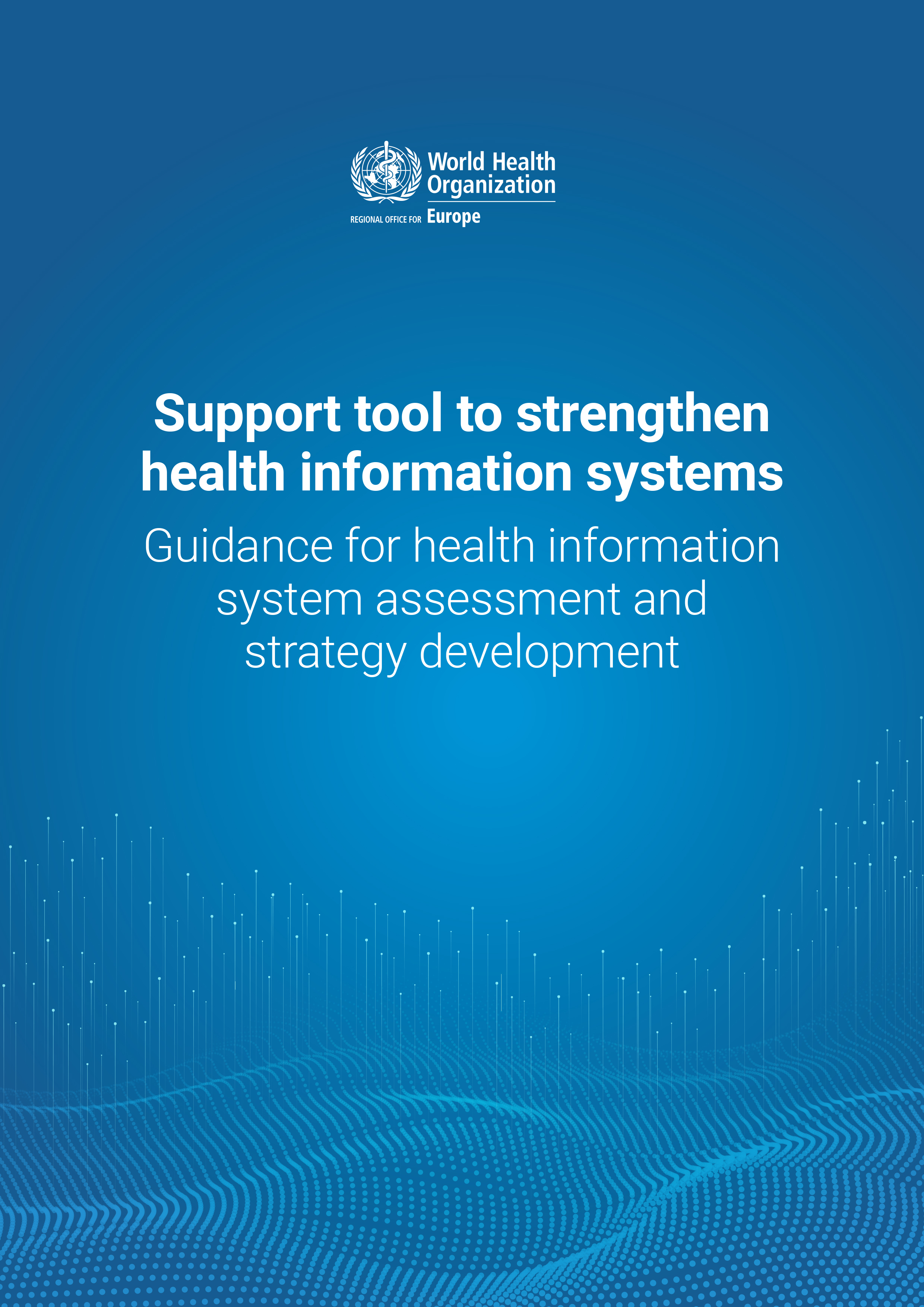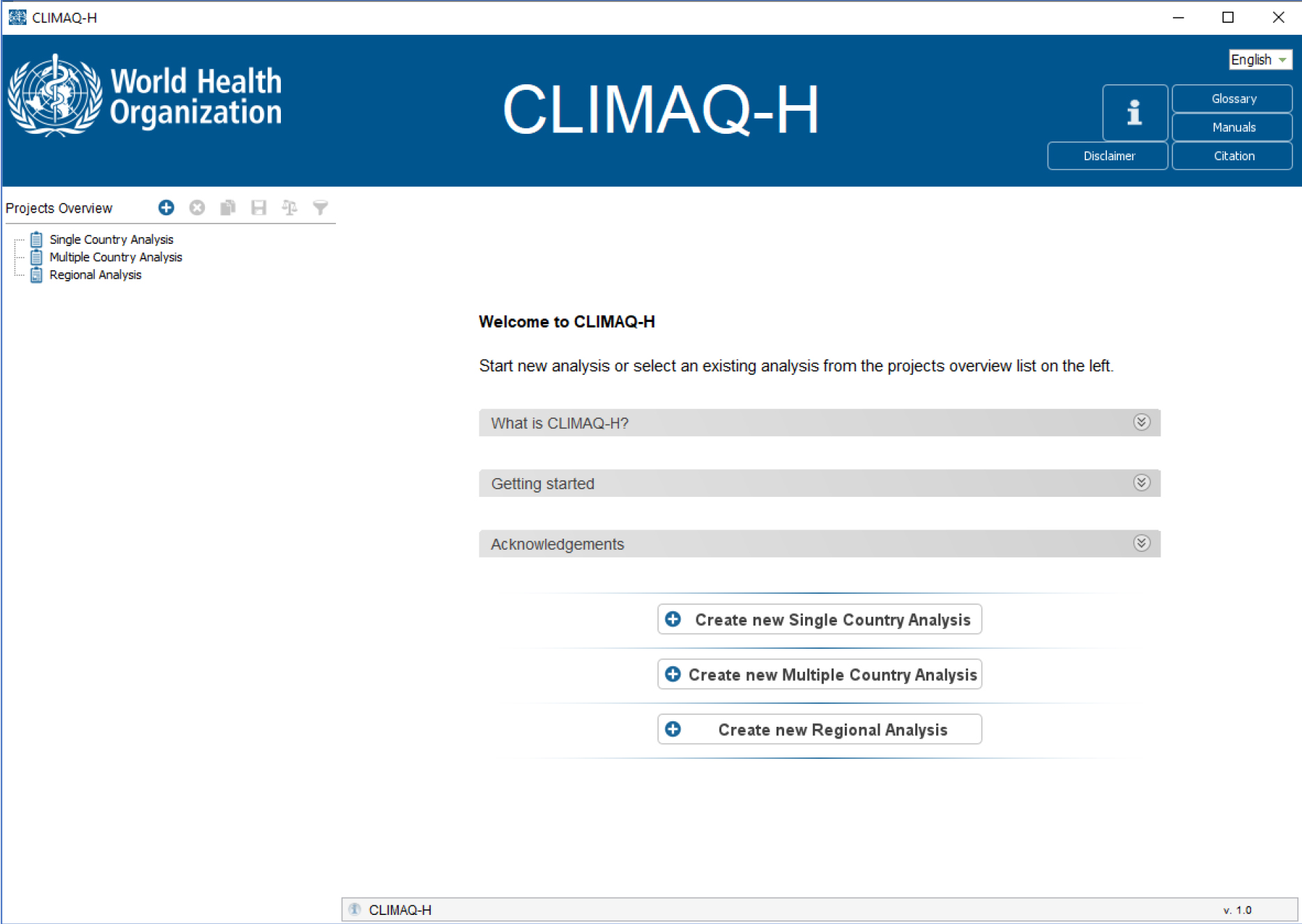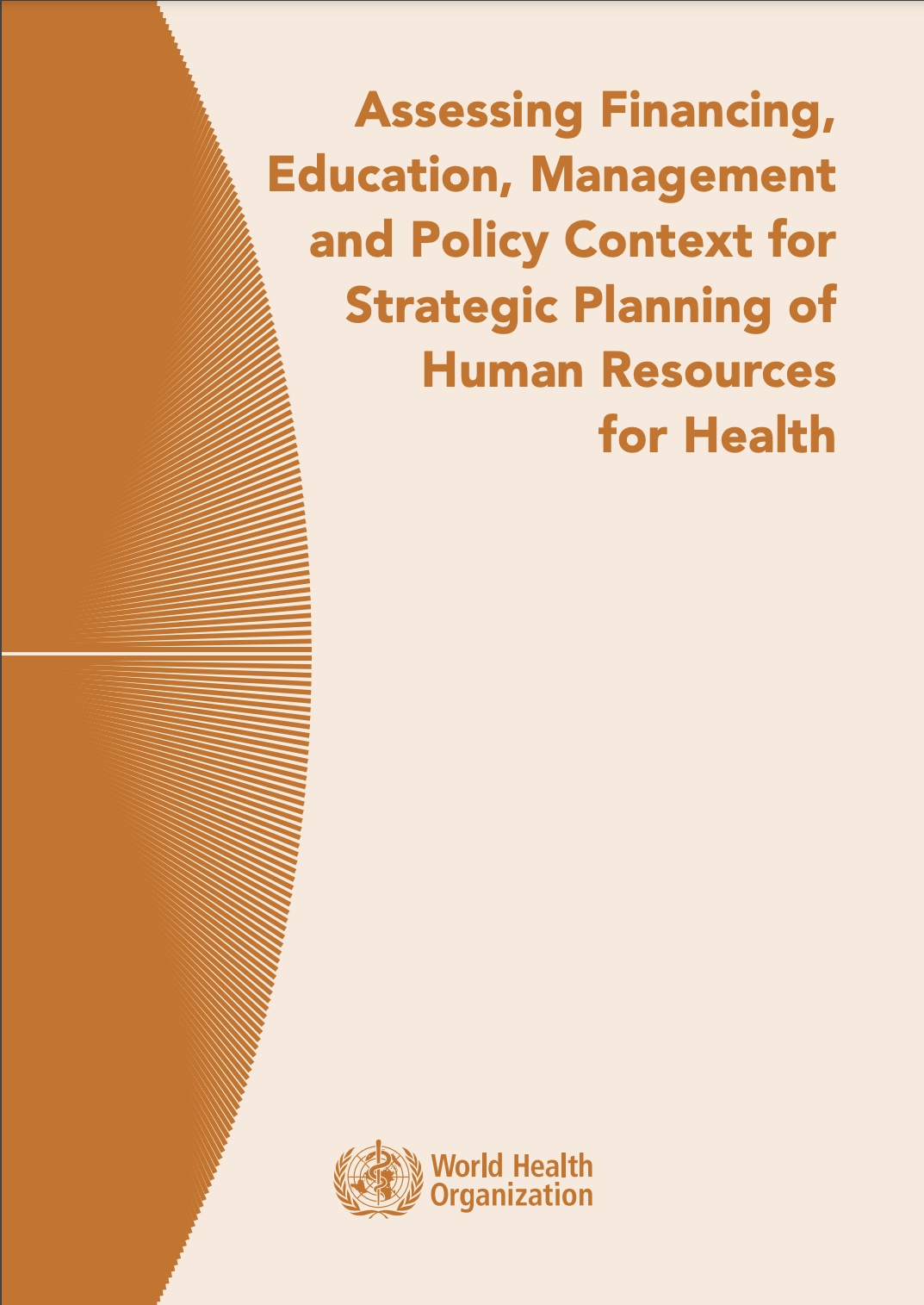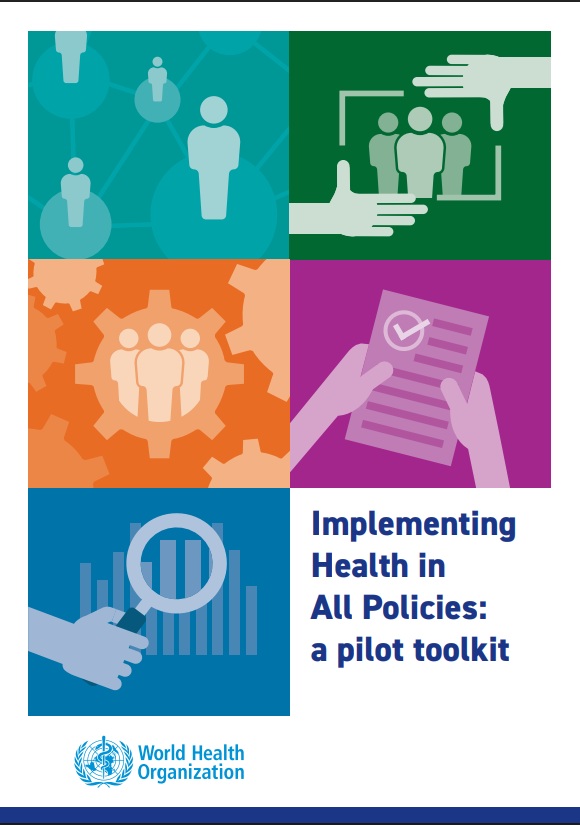Implement, monitor, evaluate, and adjust
Lessons from the Health Evidence Network (HEN): Lessons learned about delivering an evidence synthesis service for policy-makers
HEN is an information service for public health decision-makers in the WHO European Region, in action since 2003 and initiated and coordinated by the WHO Regional Office for Europe. HEN supports publi...
Options for best practice clinical guideline development in Ukraine: policy brief
This policy brief summarizes the results of this study and describes best practice structures, processes and methods for guideline development in Ukraine. Key messages include the requirement for inve...
Sound Choices: Enhancing capacity for evidence-informed health policy
This Guide addresses a mismatch between what is known about how to respond to particular health problems in poor economies and what is actually done about them. It focuses on one cause of the problems...
Systems Thinking for Health Systems Strengthening
In the previous decades, little was understood about what works in health systems strengthening and how researchers and policymakers can apply it. So, although there was general agreement for the need...
Tools for making good data visualizations: the art of charting
Data visualization is a collection of methods that use visual representations to explore, make sense of and communicate quantitative data. It allows trends and patterns in quantitative data to be seen...
Supporting the routine use of evidence during the policy-making process: a WHO checklist
This WHO checklist is for any organization or person supporting the routine use of evidence in the process of policy-making. This checklist was developed by the WHO Secretariat of Evidence-Infor...
Nine steps for developing a scaling-up strategy
The Nine Steps for developing a scaling-up strategy tool and associated worksheets are based on the ExpandNet framework and provide stepwise guidance to develop a sc...
Practical guidance for scaling up health service innovations
The Practical Guidance tool identifies general scaling-up principles and provides examples from case studies of successful scale-up initiatives. It is helpful at the design stage, during implementatio...
TDR Implementation Research Toolkit
This toolkit provides deeper learning on implementation research, helping people learn a standard process that can lead to results that can be compared across regions and countries. It is designed to...
Implementation Research in Health: A Practical Guide
Implementation issues arise as a result of a range of factors including ‘real world’ contextual factors that are either overlooked or not captured by other research disciplines. Implementation researc...
Strengthening national evidence-informed guideline programs. A tool for adapting and implementing guidelines in the Americas
The purpose of this document is to present policy-oriented and methodological strategies for developing and/or strengthening national guideline programs, focusing on the adaptation of evidence-informe...
Country cooperation strategy guide 2020: implementing the Thirteenth General Programme of Work for driving impact in every country
The Country Cooperation Strategy (CCS) is WHO’s strategic framework to guide the Organization’s work in and with a country. It responds to that country’s National Health and Development Agenda and ide...
Selection of essential medicines at country level: Using the WHO model list of essential medicines to update a national essential medicines list
Since 1977, WHO has been working with countries to design the package of essential medicines as an integral component of treatment within the continuum of care, developing and disseminating the Model...
A Guide for Evidence-Informed Decision-Making, Including in Health Emergencies
This guide aims to bring together the most recent thinking in the EIDM field and to present this in a format that is accessible to a wide audience of EIDM practitioners. It builds on, and contextuali...
Estonian Handbook for Guidelines Development
Clinical practice guidelines are generally accepted as an important tool for improving the quality of clinical care provided by health professionals, as well providing guidance to ensure the quality u...
E4As guide for advancing health and sustainable development: resources and tools for policy development and implementation
Achieving the Sustainable Development Goals (SDGs) requires working in transformative ways. This guide is a compilation of tools and resources for advancing health and sustainable development in cou...
Developing national action plans on transport, health and environment: a step-by-step manual for policy-makers and planners
A national transport, health and environment action plan (NTHEAP) is a key tool and mechanism for developing sustainable and healthy transport in a country. NTHEAPs provide a comprehensive and inter...
Evidence briefs for policy. Using the integrated knowledge translation approach. Guiding manual
Evidence Briefs for Policy (EBPs) are a relatively new, innovative approach to packaging research evidence for policy-makers; however, they are already the most widely used tool. EBPs are prepared by...
GRADE Handbook
The GRADE handbook describes the process of rating the quality of the best available evidence and developing health care recommendations following the approach proposed by the Grading of Recommendatio...
SUPPORT Tools for Evidence-informed Policymaking in health (STP) 18: Planning monitoring and evaluation of policies
This article is part of a series written for people responsible for making decisions about health policies and programmes and for those who support these decision makers.The term monitoring is commonl...
SURE Guides for Preparing and Using Evidence-Based Policy Briefs 6. Clarifying uncertainties and needs for monitoring and evaluation
SURE Guide 6 is part of the SURE Guides for Preparing and Using Evidence-Based Policy Briefs. The SURE Guides are intended for those people responsible for preparing and supporting the use of policy b...
WHO Evaluation Practice Handbook
The purpose of this handbook is to complement WHO’s evaluation policy and to streamline evaluation processes by providing step-by-step practical guidance to evaluation in WHO. It aims to foster the cu...
WHO handbook for guideline development
A WHO guideline is any document developed by the World Health Organization containing recommendations for clinical practice or public health policy. A recommendation tells the intended end-user of the...
AccessMod
AccessMod (version 5) is a free and open-source standalone software to model geographic accessibility to health services. The tool uses information on population location, health facility location, ge...
Country assessment guide: the health financing progress matrix
The Health Financing Progress Matrix (HFPM) is a standardized approach to assessing a country’s health financing system. Primarily qualitative in nature, the HFPM considers health financing institutio...
OneHealth Tool
The OneHealth Tool is a software tool designed to inform national and subnational strategic health planning in low- and middle-income countries.While many costing tools take a narrow disease-specific...
SCORE for Health Data Technical Package
The SCORE for Health Data Technical Package has been developed by WHO and partners to assist Member States in strengthening country data systems and capacities to monitor and track progress towards th...
Behavioural and social drivers of vaccination: tools and practical guidance for achieving high uptake
Understanding how people think, feel and act in relation to vaccination is vital to informing the development of strategies to generate acceptance and uptake for the vaccines. Generating and using dat...
WHO Cervical Cancer Prevention and Control Costing (C4P) Tool
The Department of Immunization, Vaccines and Biologicals (IVB) in WHO has developed a generic costing and planning tool for cervical cancer prevention and control. The WHO Cervical Cancer Prevention a...
Support tool to strengthen health information systems: guidance for health information system assessment and strategy development
This tool is an update of the 2015 Support tool to assess health information systems and develop and strengthen health information strategies. Both the global General Programme of Work and the Europea...
Climate change mitigation, air quality and health (CLIMAQ-H) tool
The Climate change mitigation, air quality and health (CLIMAQ-H) calculation tool allows quantification of the physical and economic consequences for human health achieved through improvements in coun...
Assessing financing, education, management and policy context for strategic planning of human resources for health
This document contains a method for assessing the financial, educational and management systems and policy context, essential for strategic planning and policy development for human resources for heal...
Implementing Health in All Policies: a pilot toolkit
To support countries implementing HiAP approaches, this WHO document – Implementing Health in All Policies: A pilot toolkit - has been prepared to support HiAP practice across regions, and inform the...


